Contents
Assignment 4 - DRIVER SECTION
This is the part of the code from which the tests are called
% UNCOMMENT THE CALLS TO TEST FUNCTIONS AS YOU COMPLETE THEM function Assignment4()
matlab_bug_workaround()
Series sum test
partial_sum_test_1()
partial_sum_test_2()
Sum of 1./2.^n from n = 0 to n = 20 is approximately 2: S = 1.999999 Exploring sum of inverses of squares sqrt(6S) = 3.141583
Sequences of iterates: a graphic approach
iterates_test_1()
iterates_test_2()
iterates_test_3()
iterates_test_4()
iterates_test_5()
iterates_test_6()
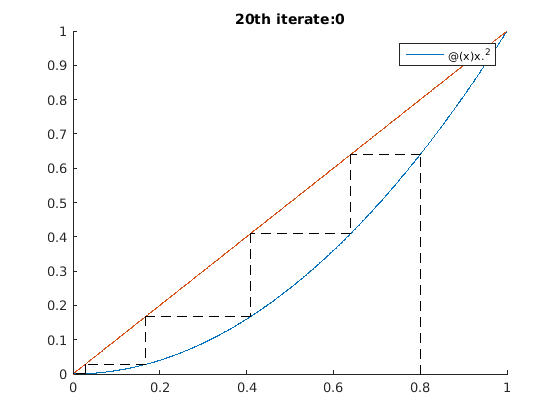
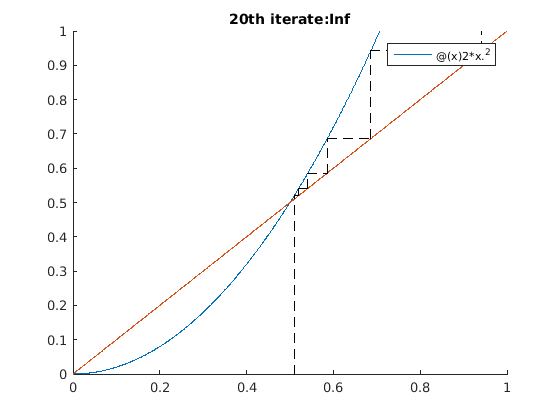
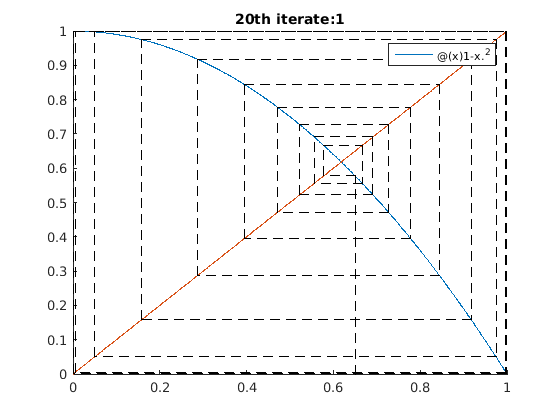
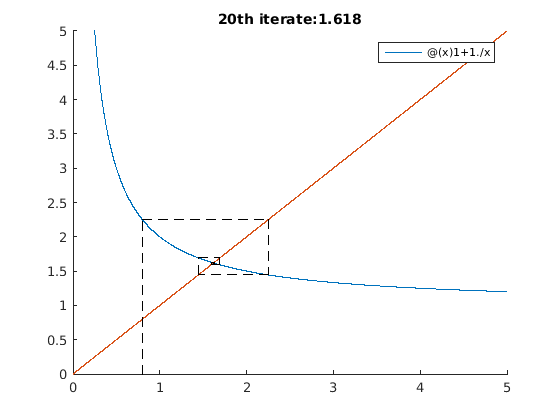
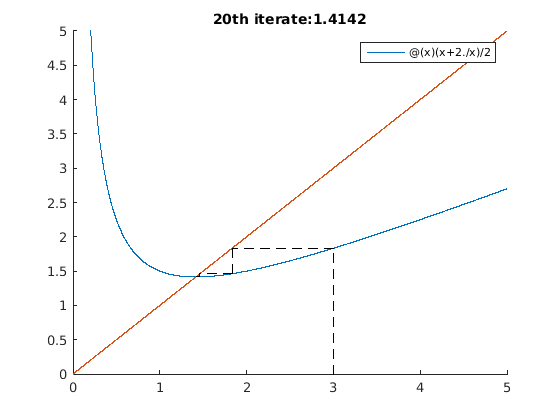
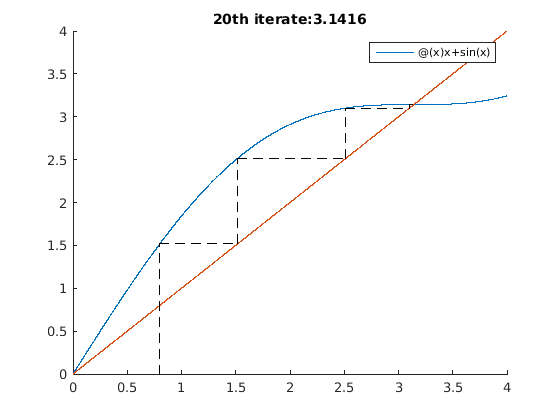
Extra credit
extra_credit_test()
ans = -0.8090 + 0.5878i 0.3090 - 0.9511i 0.3090 + 0.9511i 1.0000 + 0.0000i -0.8090 - 0.5878i
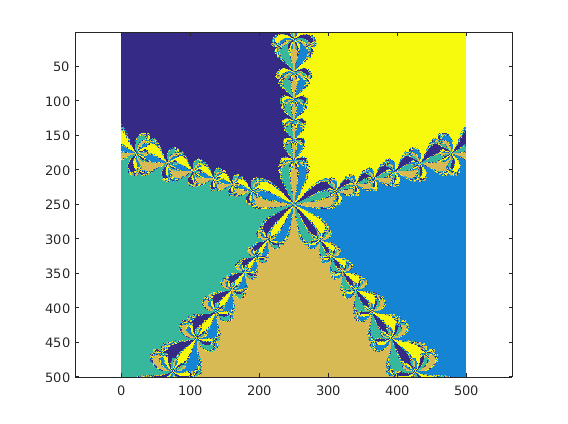
end
Functions section
This sections contains all the functions that you need to write
%%%DO NOT PUT CODE OUTSDIDE OF FUNCTIONS%%%%%%%% %%%%%COMPLETE THE FUNCTIONS BELOW%%%%%%%%%%%%%%% function [v]=dummy(a) %dummy function helps to work around a bug in MATLAB publishing code v = 2 + 2; end function [Pn] = partial_sum(f, k0, N) Pn = sum(f(k0:k0+N)); end function seg(x0, y0, x1, y1) plot([x0 x1], [y0 y1], '--k'); end function [x] = plot_iterates(f, x0, N) y = 0; x = x0; for i = 1:N seg(x, y, x, f(x)); seg(x, f(x), f(x), f(x)); y = f(x); x = y; end end function plot_func_and_iterates(f, window, x0, N) figure(); hold on; a = window(1); b = window(2); x = [a:0.001:b]; plot(x, f(x), x, x); legend(func2str(f)); axis(window); L = plot_iterates(f, x0, N); title(strcat(num2str(N),'th iterate: ', num2str(L))); end function [pos] = search_approx(L, a, eps) pos = 0; for k=1:length(L) if(abs(L(k)-a) < eps) pos = k; end end end function root = newton(f, x0, nsteps) x = x0; h = 0.000001; for i = 1:nsteps x = x - f(x) / ( (f(x+h) - f(x))/h); end root = x; end function [roots] = draw_newton_fractal(f, bounds, N) roots = []; M = zeros(N); rval = linspace(bounds(1), bounds(2), N); ival = linspace(bounds(3), bounds(4), N); for r = 1:N for c = 1:N z = rval(r) + i*ival(c); root = newton(f, z, 200); pos = search_approx(roots, root, 0.2); if (pos > 0) M(r,c) = pos; else roots(end+1) = root; M(r,c) = length(root); end end end imagesc(M); axis equal; roots' end
Tests section
This sections contains code that calls your functions to verify that they work as intended
function matlab_bug_workaround() %This is a workaround to bug #496201. dummy(1); end function partial_sum_test_1() disp('Sum of 1./2.^n from n = 0 to n = 20 is approximately 2:'); S = partial_sum(@(n) 1./(2.^n), 0, 20); fprintf('S = %f \n',S); end function partial_sum_test_2() disp('Exploring sum of inverses of squares'); S = partial_sum(@(n) 1./(n.^2), 1, 100000); v = sqrt(6*S); fprintf('sqrt(6S) = %f \n',v); end function iterates_test_1() %The sequence of iterates approaches 0 plot_func_and_iterates( @(x) x.^2, [0 1 0 1], 0.8, 20); end function iterates_test_2() plot_func_and_iterates( @(x) 2*x.^2, [0 1 0 1], 0.51, 20); end function iterates_test_3() plot_func_and_iterates( @(x) 1- x.^2, [0 1 0 1], 0.65, 20); end function iterates_test_4() plot_func_and_iterates( @(x) 1 + 1./x, [0 5 0 5], 0.8, 20); end function iterates_test_5() plot_func_and_iterates( @(x) (x + 2./x)/2, [0 5 0 5], 3, 20); end function iterates_test_6() plot_func_and_iterates( @(x) x + sin(x), [0 4 0 4], 0.8, 20); end function iterates_test_7() plot_func_and_iterates( @(x) 1 + 1./(1+x), [0 4 0 4], 0.8, 20); end function extra_credit_test() figure('Name','Newton Fractal for x^5-1'); f = @(x) x^5 - 1; draw_newton_fractal(f, [-3, 3, -3, 3], 500); end